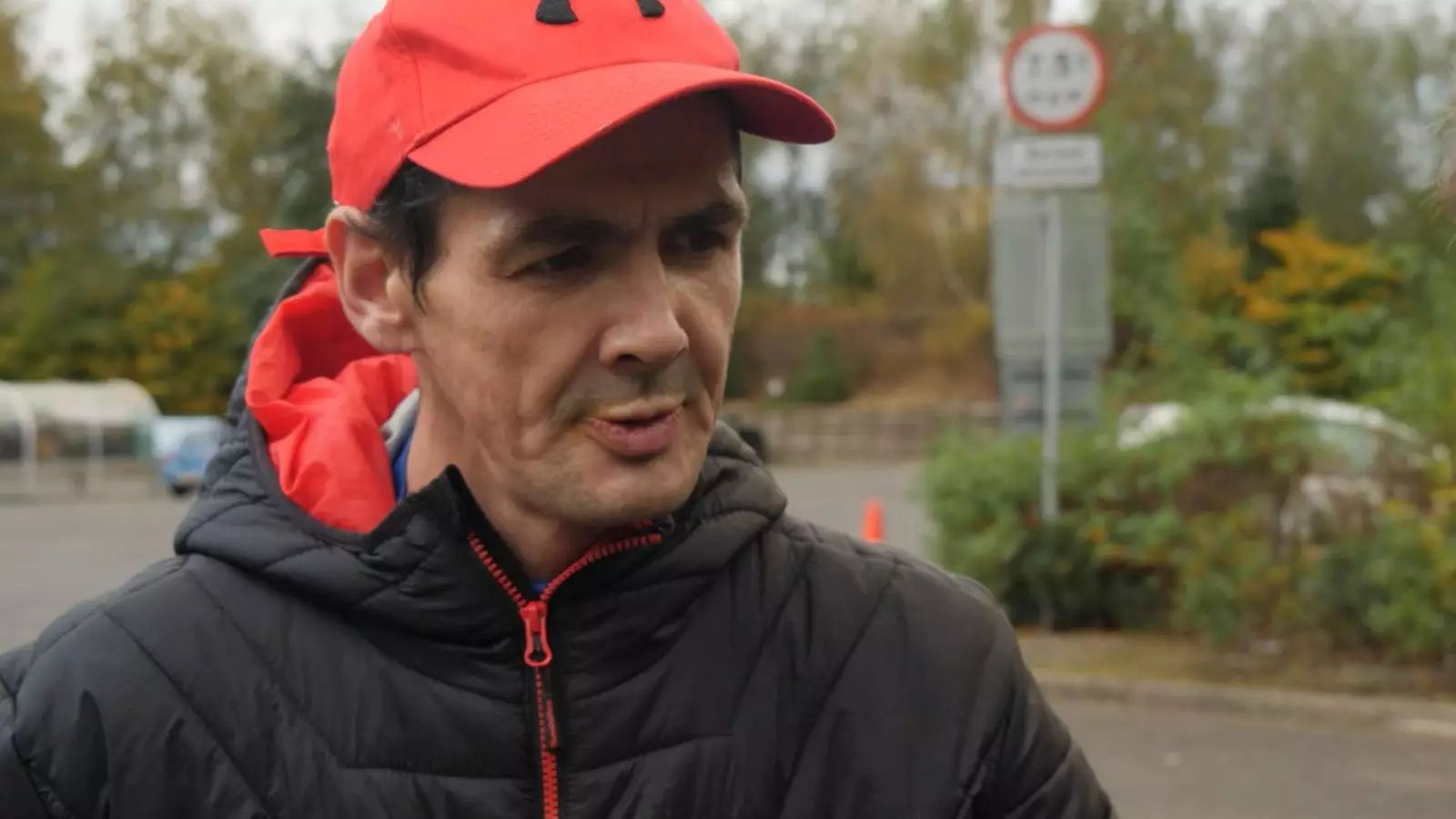On a frigid morning in East Glasgow, the streets tell a story of desperation and addiction. Chris, a 41-year-old former painter and decorator, personifies this heart-wrenching tale as he walks the desolate roads, consumed by the need for his first fix. The scene is grim: Chris brandishes a syringe filled with brown liquid, proudly announcing the quickness with which he procured his drugs. For him, the thrill of the chase for heroin has overshadowed any sense of normalcy or safety. This is a narrative that encapsulates not just a personal tragedy but a broader societal crisis impacting the community.
Chris’s descent into addiction has roots that stretch back to a devastating loss—the murder of his mother in 2007. Such trauma can profoundly affect an individual, propelling them toward self-destructive behaviors as a means of coping with pain, loss, and unresolved grief. The impact of this event is not just personal for Chris; it is emblematic of a larger narrative surrounding addiction and familial dysfunction in Glasgow. Chris’s journey raises critical questions about the social fabric and support structures available in society, especially for individuals experiencing similar tragedies.
As Chris makes his way to a grimy makeshift drug den, he illustrates the stark reality of drug use in marginalized communities. The setting is deplorable—filled with blood-soaked needles, discarded paraphernalia, and an overwhelming sense of hopelessness. Chris sits in this chaotic environment, succumbing to his addiction while exhibiting no concern about the health hazards surrounding him. This moment of vulnerability starkly contrasts the images of stigma and shame often portrayed in discussions surrounding drug use. The humanization of individuals like Chris challenges society to look beyond simplistic narratives about addiction and confront the underlying issues of mental health and societal neglect.
In response to the escalating crisis, the government has announced plans for the first “safer drug consumption room” in the UK, aiming to curb drug-related deaths and offer a more regulated environment for addicts. While this initiative might promise some hope for recovery, it is also rooted in controversy and skepticism. Many believe that such facilities might attract drug users rather than deter them, creating additional challenges for law enforcement and community safety. The sentiment among individuals like Chris reflects this doubt, as he expresses wariness about governmental intentions and the efficacy of the initiative. There exists a palpable disconnect between the authorities’ ambitions and the lived experiences of those grappling with addiction.
Scotland currently has the highest rate of drug deaths in Europe, with 1,172 fatalities reported in the last year alone, predominantly linked to opioids like heroin. Glasgow is at the heart of this epidemic. These numbers tell a story of neglect, inadequately addressed mental health issues, and the stigma surrounding drug use, which often leads to isolation for individuals seeking help. The alarming statistics should not only serve as a wake-up call for policymakers but as a poignant reminder of the individuals—including Chris—whose lives hang in the balance.
The challenge remains for authorities to balance healthcare approaches with law enforcement’s role in addressing drug-related issues. Critics emphasize that investing in safer consumption sites could detract from vital treatment and rehabilitation services, potentially perpetuating addiction rather than alleviating it. Conversely, proponents argue that evidence from various countries suggests such facilities can efficiently reduce overdose deaths and connect individuals with necessary healthcare services. However, the question of whether these initiatives can sustainably shift the narrative of addiction in Glasgow remains open and complex.
As Chris reflects on his addiction, he bluntly suggests that his death could be a welcome release from the anguish of his current life. This haunting sentiment reveals the extent of despair that grips not just him but many others in similar circumstances. The prospect of governmental programs like the drug consumption room shines a light on the urgent need for effective interventions and supports through which individuals can reclaim their lives. The status quo cannot persist; society must choose to invest in compassion, understanding, and genuine pathways to recovery, lest the cycle of addiction continues to spiral out of control.
Ultimately, the narrative of Chris and others like him is a call to action. It implores society to engage in meaningful dialogues about drug use, addiction, and recovery. Only then can we hope to break the chains of despair gripping communities across Glasgow and beyond.


Leave a Reply